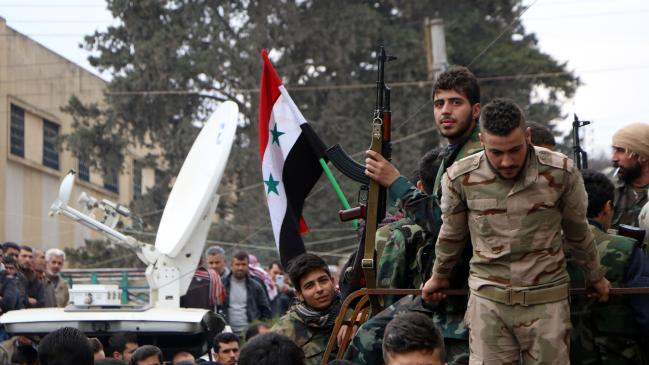The ongoing conflict in Syria has much in common with the Thirty Years’ War, which devastated the heart of Europe — particularly the German city of Magdeburg, the Aleppo of the time — from 1618 to 1648.
The war was a succession of conflicts that visited immeasurable suffering upon Europe’s population, ending, with the Peace of Westphalia, only when all of the parties involved had become utterly exhausted.
It was nominally a conflict between Catholic and Protestant Christians, just as the main divide in today’s Middle East is between Sunni and Shia Muslims. But, as in Syria today, religion masked a deeper struggle for power and regional dominance.
The Syrian war started during the Arab Spring, after protesters called for democracy and an end to Bashar al-Assad’s dictatorship. But it soon became an international affair.
Iran and Hezbollah, the Lebanese Shia militia it supports, along with Russia, intervened militarily and prevented Assad’s fall to rebel forces, which were backed by Turkey and Saudi Arabia, representing the Sunni side of the divide.
The war had also expanded to include a US-led campaign against Islamic State. And when ISIS was defeated last year, another conflict, this time between Turkey and Kurds in northern Syria, quickly ensued. Now, the US-allied Kurdish YPG (People’s Protection Units) fighters who proved indispensable in the fight against ISIS are being targeted by Turkey, which raises the possibility of a direct military confrontation between two NATO allies. Moreover, there is also a growing risk of a confrontation between the US and Russia, underscored by recent reports that a US airstrike killed dozens of Russian mercenaries in Syria.
With every new chapter, the Syrian tragedy seems to get more dangerous. The conflict is no longer about who holds power in Damascus, but about who holds hegemony in the Middle East. The struggle is not only between Russia and the US, but also pits Shia Iran against Sunni Saudi Arabia, which has increasingly aligned itself with Israel, another US ally.
Turkey, for its part, is driven primarily by the fear a Kurdish state will be established in northern Syria, which could encourage separatist Kurdish factions in southeast Turkey. Indeed, the Kurds in northern Iraq have already been vying for their own state, and even held an independence referendum last year.
Read the full article written by Joschka Fischer at The Australian.

